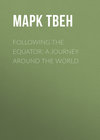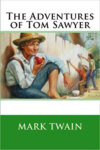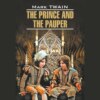Czytaj książkę: «Following the Equator: A Journey Around the World», strona 5
CHAPTER VII
Truth is the most valuable thing we have. Let us economize it.
– Pudd’nhead Wilson’s New Calendar.
From Diary: – For a day or two we have been plowing among an invisible vast wilderness of islands, catching now and then a shadowy glimpse of a member of it. There does seem to be a prodigious lot of islands this year; the map of this region is freckled and fly-specked all over with them. Their number would seem to be uncountable. We are moving among the Fijis now – 224 islands and islets in the group. In front of us, to the west, the wilderness stretches toward Australia, then curves upward to New Guinea, and still up and up to Japan; behind us, to the east, the wilderness stretches sixty degrees across the wastes of the Pacific; south of us is New Zealand. Somewhere or other among these myriads Samoa is concealed, and not discoverable on the map. Still, if you wish to go there, you will have no trouble about finding it if you follow the directions given by Robert Louis Stevenson to Dr. Conan Doyle and to Mr. J. M. Barrie. “You go to America, cross the continent to San Francisco, and then it’s the second turning to the left.” To get the full flavor of the joke one must take a glance at the map.
Wednesday, September 11. – Yesterday we passed close to an island or so, and recognized the published Fiji characteristics: a broad belt of clean white coral sand around the island; back of it a graceful fringe of leaning palms, with native huts nestling cosily among the shrubbery at their bases; back of these a stretch of level land clothed in tropic vegetation; back of that, rugged and picturesque mountains. A detail of the immediate foreground: a mouldering ship perched high up on a reef-bench. This completes the composition, and makes the picture artistically perfect.
In the afternoon we sighted Suva, the capital of the group, and threaded our way into the secluded little harbor – a placid basin of brilliant blue and green water tucked snugly in among the sheltering hills. A few ships rode at anchor in it – one of them a sailing vessel flying the American flag; and they said she came from Duluth! There’s a journey! Duluth is several thousand miles from the sea, and yet she is entitled to the proud name of Mistress of the Commercial Marine of the United States of America. There is only one free, independent, unsubsidized American ship sailing the foreign seas, and Duluth owns it. All by itself that ship is the American fleet. All by itself it causes the American name and power to be respected in the far regions of the globe. All by itself it certifies to the world that the most populous civilized nation, in the earth has a just pride in her stupendous stretch of sea-front, and is determined to assert and maintain her rightful place as one of the Great Maritime Powers of the Planet. All by itself it is making foreign eyes familiar with a Flag which they have not seen before for forty years, outside of the museum. For what Duluth has done, in building, equipping, and maintaining at her sole expense the American Foreign Commercial Fleet, and in thus rescuing the American name from shame and lifting it high for the homage of the nations, we owe her a debt of gratitude which our hearts shall confess with quickened beats whenever her name is named henceforth. Many national toasts will die in the lapse of time, but while the flag flies and the Republic survives, they who live under their shelter will still drink this one, standing and uncovered: Health and prosperity to Thee, O Duluth, American Queen of the Alien Seas!
Row-boats began to flock from the shore; their crews were the first natives we had seen. These men carried no overplus of clothing, and this was wise, for the weather was hot. Handsome, great dusky men they were, muscular, clean-limbed, and with faces full of character and intelligence. It would be hard to find their superiors anywhere among the dark races, I should think.
Everybody went ashore to look around, and spy out the land, and have that luxury of luxuries to sea-voyagers – a land-dinner. And there we saw more natives: Wrinkled old women, with their flat mammals flung over their shoulders, or hanging down in front like the cold-weather drip from the molasses-faucet; plump and smily young girls, blithe and content, easy and graceful, a pleasure to look at; young matrons, tall, straight, comely, nobly built, sweeping by with chin up, and a gait incomparable for unconscious stateliness and dignity; majestic young men – athletes for build and muscle – clothed in a loose arrangement of dazzling white, with bronze breast and bronze legs naked, and the head a cannon-swab of solid hair combed straight out from the skull and dyed a rich brick-red. Only sixty years ago they were sunk in darkness; now they have the bicycle.
We strolled about the streets of the white folks’ little town, and around over the hills by paths and roads among European dwellings and gardens and plantations, and past clumps of hibiscus that made a body blink, the great blossoms were so intensely red; and by and by we stopped to ask an elderly English colonist a question or two, and to sympathize with him concerning the torrid weather; but he was surprised, and said:
“This? This is not hot. You ought to be here in the summer time once.”
“We supposed that this was summer; it has the ear-marks of it. You could take it to almost any country and deceive people with it. But if it isn’t summer, what does it lack?”
“It lacks half a year. This is mid-winter."
I had been suffering from colds for several months, and a sudden change of season, like this, could hardly fail to do me hurt. It brought on another cold. It is odd, these sudden jumps from season to season. A fortnight ago we left America in mid-summer, now it is midwinter; about a week hence we shall arrive in Australia in the spring.
After dinner I found in the billiard-room a resident whom I had known somewhere else in the world, and presently made some new friends and drove with them out into the country to visit his Excellency the head of the State, who was occupying his country residence, to escape the rigors of the winter weather, I suppose, for it was on breezy high ground and much more comfortable than the lower regions, where the town is, and where the winter has full swing, and often sets a person’s hair afire when he takes off his hat to bow. There is a noble and beautiful view of ocean and islands and castellated peaks from the governor’s high-placed house, and its immediate surroundings lie drowsing in that dreamy repose and serenity which are the charm of life in the Pacific Islands.
One of the new friends who went out there with me was a large man, and I had been admiring his size all the way. I was still admiring it as he stood by the governor on the veranda, talking; then the Fijian butler stepped out there to announce tea, and dwarfed him. Maybe he did not quite dwarf him, but at any rate the contrast was quite striking. Perhaps that dark giant was a king in a condition of political suspension. I think that in the talk there on the veranda it was said that in Fiji, as in the Sandwich Islands, native kings and chiefs are of much grander size and build than the commoners. This man was clothed in flowing white vestments, and they were just the thing for him; they comported well with his great stature and his kingly port and dignity. European clothes would have degraded him and made him commonplace. I know that, because they do that with everybody that wears them.
It was said that the old-time devotion to chiefs and reverence for their persons still survive in the native commoner, and in great force. The educated young gentleman who is chief of the tribe that live in the region about the capital dresses in the fashion of high-class European gentlemen, but even his clothes cannot damn him in the reverence of his people. Their pride in his lofty rank and ancient lineage lives on, in spite of his lost authority and the evil magic of his tailor. He has no need to defile himself with work, or trouble his heart with the sordid cares of life; the tribe will see to it that he shall not want, and that he shall hold up his head and live like a gentleman. I had a glimpse of him down in the town. Perhaps he is a descendant of the last king – the king with the difficult name whose memory is preserved by a notable monument of cut-stone which one sees in the enclosure in the middle of the town. Thakombau – I remember, now; that is the name. It is easier to preserve it on a granite block than in your head.
Fiji was ceded to England by this king in 1858. One of the gentlemen present at the governor’s quoted a remark made by the king at the time of the session – a neat retort, and with a touch of pathos in it, too. The English Commissioner had offered a crumb of comfort to Thakombau by saying that the transfer of the kingdom to Great Britain was merely “a sort of hermit-crab formality, you know.” “Yes,” said poor Thakombau, “but with this difference – the crab moves into an unoccupied shell, but mine isn’t.”
However, as far as I can make out from the books, the King was between the devil and the deep sea at the time, and hadn’t much choice. He owed the United States a large debt – a debt which he could pay if allowed time, but time was denied him. He must pay up right away or the warships would be upon him. To protect his people from this disaster he ceded his country to Britain, with a clause in the contract providing for the ultimate payment of the American debt.
In old times the Fijians were fierce fighters; they were very religious, and worshiped idols; the big chiefs were proud and haughty, and they were men of great style in many ways; all chiefs had several wives, the biggest chiefs sometimes had as many as fifty; when a chief was dead and ready for burial, four or five of his wives were strangled and put into the grave with him. In 1804 twenty-seven British convicts escaped from Australia to Fiji, and brought guns and ammunition with them. Consider what a power they were, armed like that, and what an opportunity they had. If they had been energetic men and sober, and had had brains and known how to use them, they could have achieved the sovereignty of the archipelago twenty-seven kings and each with eight or nine islands under his scepter. But nothing came of this chance. They lived worthless lives of sin and luxury, and died without honor – in most cases by violence. Only one of them had any ambition; he was an Irishman named Connor. He tried to raise a family of fifty children, and scored forty-eight. He died lamenting his failure. It was a foolish sort of avarice. Many a father would have been rich enough with forty.
It is a fine race, the Fijians, with brains in their heads, and an inquiring turn of mind. It appears that their savage ancestors had a doctrine of immortality in their scheme of religion – with limitations. That is to say, their dead friend would go to a happy hereafter if he could be accumulated, but not otherwise. They drew the line; they thought that the missionary’s doctrine was too sweeping, too comprehensive. They called his attention to certain facts. For instance, many of their friends had been devoured by sharks; the sharks, in their turn, were caught and eaten by other men; later, these men were captured in war, and eaten by the enemy. The original persons had entered into the composition of the sharks; next, they and the sharks had become part of the flesh and blood and bone of the cannibals. How, then, could the particles of the original men be searched out from the final conglomerate and put together again? The inquirers were full of doubts, and considered that the missionary had not examined the matter with the gravity and attention which so serious a thing deserved.
The missionary taught these exacting savages many valuable things, and got from them one – a very dainty and poetical idea: Those wild and ignorant poor children of Nature believed that the flowers, after they perish, rise on the winds and float away to the fair fields of heaven, and flourish there forever in immortal beauty!
CHAPTER VIII
It could probably be shown by facts and figures that there is no distinctly native American criminal class except Congress.
– Pudd’nhead Wilson’s New Calendar.
When one glances at the map the members of the stupendous island wilderness of the Pacific seem to crowd upon each other; but no, there is no crowding, even in the center of a group; and between groups there are lonely wide deserts of sea. Not everything is known about the islands, their peoples and their languages. A startling reminder of this is furnished by the fact that in Fiji, twenty years ago, were living two strange and solitary beings who came from an unknown country and spoke an unknown language. “They were picked up by a passing vessel many hundreds of miles from any known land, floating in the same tiny canoe in which they had been blown out to sea. When found they were but skin and bone. No one could understand what they said, and they have never named their country; or, if they have, the name does not correspond with that of any island on any chart. They are now fat and sleek, and as happy as the day is long. In the ship’s log there is an entry of the latitude and longitude in which they were found, and this is probably all the clue they will ever have to their lost homes.” – [Forbes’s “Two Years in Fiji.”]
What a strange and romantic episode it is; and how one is tortured with curiosity to know whence those mysterious creatures came, those Men Without a Country, errant waifs who cannot name their lost home, wandering Children of Nowhere.
Indeed, the Island Wilderness is the very home of romance and dreams and mystery. The loneliness, the solemnity, the beauty, and the deep repose of this wilderness have a charm which is all their own for the bruised spirit of men who have fought and failed in the struggle for life in the great world; and for men who have been hunted out of the great world for crime; and for other men who love an easy and indolent existence; and for others who love a roving free life, and stir and change and adventure; and for yet others who love an easy and comfortable career of trading and money-getting, mixed with plenty of loose matrimony by purchase, divorce without trial or expense, and limitless spreeing thrown in to make life ideally perfect.
We sailed again, refreshed.
The most cultivated person in the ship was a young Englishman whose home was in New Zealand. He was a naturalist. His learning in his specialty was deep and thorough, his interest in his subject amounted to a passion, he had an easy gift of speech; and so, when he talked about animals it was a pleasure to listen to him. And profitable, too, though he was sometimes difficult to understand because now and then he used scientific technicalities which were above the reach of some of us. They were pretty sure to be above my reach, but as he was quite willing to explain them I always made it a point to get him to do it. I had a fair knowledge of his subject – layman’s knowledge – to begin with, but it was his teachings which crystalized it into scientific form and clarity – in a word, gave it value.
His special interest was the fauna of Australasia, and his knowledge of the matter was as exhaustive as it was accurate. I already knew a good deal about the rabbits in Australasia and their marvelous fecundity, but in my talks with him I found that my estimate of the great hindrance and obstruction inflicted by the rabbit pest upon traffic and travel was far short of the facts. He told me that the first pair of rabbits imported into Australasia bred so wonderfully that within six months rabbits were so thick in the land that people had to dig trenches through them to get from town to town.
He told me a great deal about worms, and the kangaroo, and other coleoptera, and said he knew the history and ways of all such pachydermata. He said the kangaroo had pockets, and carried its young in them when it couldn’t get apples. And he said that the emu was as big as an ostrich, and looked like one, and had an amorphous appetite and would eat bricks. Also, that the dingo was not a dingo at all, but just a wild dog; and that the only difference between a dingo and a dodo was that neither of them barked; otherwise they were just the same. He said that the only game-bird in Australia was the wombat, and the only song-bird the larrikin, and that both were protected by government. The most beautiful of the native birds was the bird of Paradise. Next came the two kinds of lyres; not spelt the same. He said the one kind was dying out, the other thickening up. He explained that the “Sundowner” was not a bird it was a man; sundowner was merely the Australian equivalent of our word, tramp. He is a loafer, a hard drinker, and a sponge. He tramps across the country in the sheep-shearing season, pretending to look for work; but he always times himself to arrive at a sheep-run just at sundown, when the day’s labor ends; all he wants is whisky and supper and bed and breakfast; he gets them and then disappears. The naturalist spoke of the bell bird, the creature that at short intervals all day rings out its mellow and exquisite peal from the deeps of the forest. It is the favorite and best friend of the weary and thirsty sundowner; for he knows that wherever the bell bird is, there is water; and he goes somewhere else. The naturalist said that the oddest bird in Australasia was the, Laughing Jackass, and the biggest the now extinct Great Moa.
The Moa stood thirteen feet high, and could step over an ordinary man’s head or kick his hat off; and his head, too, for that matter. He said it was wingless, but a swift runner. The natives used to ride it. It could make forty miles an hour, and keep it up for four hundred miles and come out reasonably fresh. It was still in existence when the railway was introduced into New Zealand; still in existence, and carrying the mails. The railroad began with the same schedule it has now: two expresses a week-time, twenty miles an hour. The company exterminated the moa to get the mails.
Speaking of the indigenous coneys and bactrian camels, the naturalist said that the coniferous and bacteriological output of Australasia was remarkable for its many and curious departures from the accepted laws governing these species of tubercles, but that in his opinion Nature’s fondness for dabbling in the erratic was most notably exhibited in that curious combination of bird, fish, amphibian, burrower, crawler, quadruped, and Christian called the Ornithorhynchus – grotesquest of animals, king of the animalculae of the world for versatility of character and make-up. Said he:
“You can call it anything you want to, and be right. It is a fish, for it lives in the river half the time; it is a land animal, for it resides on the land half the time; it is an amphibian, since it likes both and does not know which it prefers; it is a hybernian, for when times are dull and nothing much going on it buries itself under the mud at the bottom of a puddle and hybernates there a couple of weeks at a time; it is a kind of duck, for it has a duck-bill and four webbed paddles; it is a fish and quadruped together, for in the water it swims with the paddles and on shore it paws itself across country with them; it is a kind of seal, for it has a seal’s fur; it is carnivorous, herbivorous, insectivorous, and vermifuginous, for it eats fish and grass and butterflies, and in the season digs worms out of the mud and devours them; it is clearly a bird, for it lays eggs, and hatches them; it is clearly a mammal, for it nurses its young; and it is manifestly a kind of Christian, for it keeps the Sabbath when there is anybody around, and when there isn’t, doesn’t. It has all the tastes there are except refined ones, it has all the habits there are except good ones.
“It is a survival – a survival of the fittest. Mr. Darwin invented the theory that goes by that name, but the Ornithorhynchus was the first to put it to actual experiment and prove that it could be done. Hence it should have as much of the credit as Mr. Darwin. It was never in the Ark; you will find no mention of it there; it nobly stayed out and worked the theory. Of all creatures in the world it was the only one properly equipped for the test. The Ark was thirteen months afloat, and all the globe submerged; no land visible above the flood, no vegetation, no food for a mammal to eat, nor water for a mammal to drink; for all mammal food was destroyed, and when the pure floods from heaven and the salt oceans of the earth mingled their waters and rose above the mountain tops, the result was a drink which no bird or beast of ordinary construction could use and live. But this combination was nuts for the Ornithorhynchus, if I may use a term like that without offense. Its river home had always been salted by the flood-tides of the sea. On the face of the Noachian deluge innumerable forest trees were floating. Upon these the Ornithorhynchus voyaged in peace; voyaged from clime to clime, from hemisphere to hemisphere, in contentment and comfort, in virile interest in the constant change of scene, in humble thankfulness for its privileges, in ever-increasing enthusiasm in the development of the great theory upon whose validity it had staked its life, its fortunes, and its sacred honor, if I may use such expressions without impropriety in connection with an episode of this nature.
“It lived the tranquil and luxurious life of a creature of independent means. Of things actually necessary to its existence and its happiness not a detail was wanting. When it wished to walk, it scrambled along the tree-trunk; it mused in the shade of the leaves by day, it slept in their shelter by night; when it wanted the refreshment of a swim, it had it; it ate leaves when it wanted a vegetable diet, it dug under the bark for worms and grubs; when it wanted fish it caught them, when it wanted eggs it laid them. If the grubs gave out in one tree it swam to another; and as for fish, the very opulence of the supply was an embarrassment. And finally, when it was thirsty it smacked its chops in gratitude over a blend that would have slain a crocodile.
“When at last, after thirteen months of travel and research in all the Zones it went aground on a mountain-summit, it strode ashore, saying in its heart, ‘Let them that come after me invent theories and dream dreams about the Survival of the Fittest if they like, but I am the first that has done it!
“This wonderful creature dates back like the kangaroo and many other Australian hydrocephalous invertebrates, to an age long anterior to the advent of man upon the earth; they date back, indeed, to a time when a causeway hundreds of miles wide, and thousands of miles long, joined Australia to Africa, and the animals of the two countries were alike, and all belonged to that remote geological epoch known to science as the Old Red Grindstone Post-Pleosaurian. Later the causeway sank under the sea; subterranean convulsions lifted the African continent a thousand feet higher than it was before, but Australia kept her old level. In Africa’s new climate the animals necessarily began to develop and shade off into new forms and families and species, but the animals of Australia as necessarily remained stationary, and have so remained until this day. In the course of some millions of years the African Ornithorhynchus developed and developed and developed, and sluffed off detail after detail of its make-up until at last the creature became wholly disintegrated and scattered. Whenever you see a bird or a beast or a seal or an otter in Africa you know that he is merely a sorry surviving fragment of that sublime original of whom I have been speaking – that creature which was everything in general and nothing in particular – the opulently endowed ‘e pluribus unum’ of the animal world.
“Such is the history of the most hoary, the most ancient, the most venerable creature that exists in the earth today – Ornithorhynchus Platypus Extraordinariensis – whom God preserve!”
When he was strongly moved he could rise and soar like that with ease. And not only in the prose form, but in the poetical as well. He had written many pieces of poetry in his time, and these manuscripts he lent around among the passengers, and was willing to let them be copied. It seemed to me that the least technical one in the series, and the one which reached the loftiest note, perhaps, was his —
INVOCATION
“Come forth from thy oozy couch,
O Ornithorhynchus dear!
And greet with a cordial claw
The stranger that longs to hear
“From thy own own lips the tale
Of thy origin all unknown:
Thy misplaced bone where flesh should be
And flesh where should be bone;
“And fishy fin where should be paw,
And beaver-trowel tail,
And snout of beast equip’d with teeth
Where gills ought to prevail.
“Come, Kangaroo, the good and true
Foreshortened as to legs,
And body tapered like a churn,
And sack marsupial, i’ fegs,
“And tells us why you linger here,
Thou relic of a vanished time,
When all your friends as fossils sleep,
Immortalized in lime!”
Perhaps no poet is a conscious plagiarist; but there seems to be warrant for suspecting that there is no poet who is not at one time or another an unconscious one. The above verses are indeed beautiful, and, in a way, touching; but there is a haunting something about them which unavoidably suggests the Sweet Singer of Michigan. It can hardly be doubted that the author had read the works of that poet and been impressed by them. It is not apparent that he has borrowed from them any word or yet any phrase, but the style and swing and mastery and melody of the Sweet Singer all are there. Compare this Invocation with “Frank Dutton” – particularly stanzas first and seventeenth – and I think the reader will feel convinced that he who wrote the one had read the other:
I
“Frank Dutton was as fine a lad
As ever you wish to see,
And he was drowned in Pine Island Lake
On earth no more will he be,
His age was near fifteen years,
And he was a motherless boy,
He was living with his grandmother
When he was drowned, poor boy."
XVII
“He was drowned on Tuesday afternoon,
On Sunday he was found,
And the tidings of that drowned boy
Was heard for miles around.
His form was laid by his mother’s side,
Beneath the cold, cold ground,
His friends for him will drop a tear
When they view his little mound."
The Sentimental Song Book.
By Mrs. Julia Moore, p. 36.




















